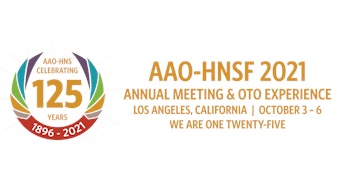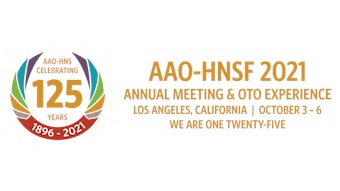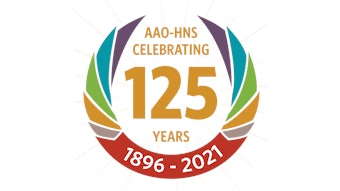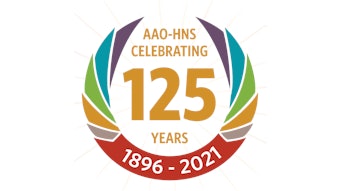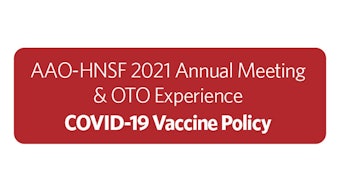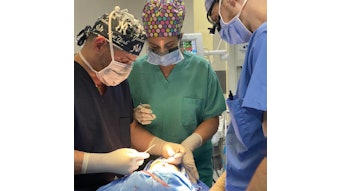Out of Committee: Outcomes Research and Evidence-Based Medicine Committee | COVID-19 Vaccines and Otolaryngology: What Your Patients Should Know
The COVID-19 pandemic, caused by the SARS-CoV-2 virus, has placed a significant strain on the medical community over the past year and a half. In late 2020, the first vaccines against SARS-CoV-2 received emergency authorization.
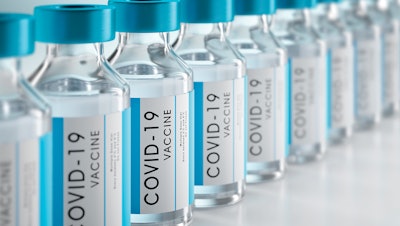
*Information in this article is up to date as of June 30, 2021.*
The COVID-19 pandemic, caused by the SARS-CoV-2 virus, has placed a significant strain on the medical community over the past year and a half. In late 2020, the first vaccines against SARS-CoV-2 received emergency authorization, and as of August 2021, 49.6% of the United States population has been fully vaccinated.1 Despite the vaccine being available for over six months, there remains a fair amount of disinformation regarding who can receive the vaccine, complications from the vaccine, and when the vaccine will be available for young children. These concerns have contributed to vaccine hesitancy in much of the population.
Indications and Vulnerable Populations
The SARS-CoV-2 vaccine is currently approved for individuals aged 12 and older in the U.S. There have been some questions regarding the timing of vaccination regarding patients with cancer, pregnancy, and autoimmune disorders. Numerous groups including the American Cancer Society and the National Comprehensive Cancer Network generally recommend for patients with cancer, even if actively undergoing therapy, to receive the vaccine.2 The few exceptions include those undergoing intensive cytotoxic chemotherapy (wait until ANC recovers), hematopoietic cell transplantation (wait until three months after treatment) or undergoing major surgery (wait at least a few days). If the SARS-CoV-2 vaccine is administered during active chemotherapy, the current recommendation is to administer the vaccine between treatments when the immune response is most robust. Since the immune response will likely be limited due to ongoing chemotherapy, there is an additional recommendation that all close contacts of these individuals be vaccinated as well.3
There remains limited data regarding the use of the SARS-CoV-2 vaccines in pregnant and breastfeeding women.4 If possible, it is recommended that vaccination should occur prior to pregnancy. If this is not possible, preliminary data are promising. Pregnant women are a prioritized group for vaccination, but women who choose to wait for more data should be supported in this decision.
Individuals with rheumatologic, autoimmune disease, and chronic immunosuppression are candidates for vaccination. Because immunosuppressive regimens used for these conditions may attenuate immune response, holding such treatment before vaccination may be a consideration.5 In this population, individuals receiving the vaccine should be counseled that their immunologic response may be limited.6 Whether treatment was continued or completed prior to vaccination, antibody titers should be checked in this population both 2-4 weeks and 3-6 months following therapy. The CDC has determined that COVID-19 vaccination with Pfizer-BioNTech, Moderna, or Johnson and Johnson vaccines is safe for immunocompromised patients. In addition, the FDA has authorized extra COVID-19 vaccine doses for immunocompromised patients.
Adverse Events, Complications, and Side Effects
In the U.S., the currently available vaccines include Pfizer-BioNTech, Moderna, and Janssen (Johnson & Johnson). A fourth, AstraZeneca, while not available in the U.S., is available in much of the western world. The most common side effects of all four of these SARS-CoV2 vaccinations are myalgias and fever. For the mRNA vaccines (Pfizer-BioNTech, Moderna), there are rare instances of anaphylaxis and/or swelling of lips or tongue, occurring in less than 2.5 per million vaccine doses.7 It is recommended that patients with a history of reaction to polyethylene glycol or its derivatives avoid both mRNA vaccines.8 In the Adenovirus vector vaccines (Janssen and AstraZeneca) there is a rare risk of thrombotic thrombocytopenia. This thrombotic thrombocytopenia has been associated with dural venous thrombosis and splanchnic thrombosis. As of April, there were a total of 222 reported thrombotic episodes, among the 34 million doses of the AstraZeneca vaccine, and 15 episodes among the 6.8 million doses of Janssen.9 Further aftermarket safety monitoring is ongoing, and while there are rare severe events, most individuals have only mild local and/or systemic responses to the available vaccines. Despite early questions regarding other potential associations, analyses of administrative databases, case-control studies, and CDC reporting databases have not demonstrated an association between COVID-19 vaccination and facial palsy or sudden sensorineural hearing loss.10-16
Future Indications and Children
The CDC recommends that everyone 12 years and older should get a COVID-19 vaccination to help protect against COVID-19, except with a documented severe allergic reaction. As adults in the U.S. continue to get vaccinated against COVID-19, the next public health measure is to determine the safety, efficacy, and future of vaccination in children < 12 years of age.
As of June 2021, interim recommendations were issued for the use of Pfizer-BioNTech COVID-19 vaccine in adolescents ages 12–15 years under the Food and Drug Administration’s Emergency Use Authorization. During the BioNTech trial in children 12-15 years, there was 100% prevention of symptomatic laboratory-confirmed COVID-19 in this age group.17 Pfizer and Moderna have also announced clinical trials in children 6 months - 11 years, with anticipated results of these studies by the early fall.18 As of writing, the CDC is currently monitoring reports of myocarditis and pericarditis occurring after mRNA COVID-19 vaccination in young adults. Nonetheless, the CDC still recommends vaccination in children over 12 years of age.
Regarding how the vaccine will affect the field of otolaryngology; children (especially younger children) are not currently thought to be “super-spreaders” of the virus. With increasing vaccination rates among adults and with rising prevalence of viral variants, pediatric patients may eventually become a larger contributor to viral spread.19 Children are known to have potent immune responses, which has led to the risk of multisystem inflammatory syndrome (MIS-C) in those exposed to the virus. Previous trial results have shown that 12–15-year old’s receiving the standard two doses of the Pfizer vaccine have developed higher levels of virus-blocking antibodies than their elder cohorts (16–25-year old’s), but how this will translate to even younger populations is unknown at this time.19
References
1. U.S. Centers for Disease Control and Prevention. CDC COVID data tracker. Accessed June 27, 2021. https://covid.cdc.gov/covid-data-tracker/#vaccinations
2. National Comprehensive Cancer Network. Recommendations of the NCCN COVID-19 vaccination advisory committee. 3.0 ver. Accessed June 28, 2021. https://www.nccn.org/docs/default-source/covid-19/2021_covid-19_vaccination_guidance_v3-0.pdf?sfvrsn=b483da2b_60
3. Tougeron D, Hentzien M, Seitz-Polski B, et al. Severe acute respiratory syndrome coronavirus 2 vaccination for patients with solid cancer: review and point of view of a French oncology intergroup (GCO, TNCD, UNICANCER). Eur J Cancer. 2021;150:232-239.
4. Stafford IA, Parchem JG, Sibai BM. The coronavirus disease 2019 vaccine in pregnancy: risks, benefits, and recommendations. Am J Gynecol. 2021;224(5):484-495.
5. Moutsopoulos HM. A recommended paradigm for vaccination of rheumatic disease patients with the SARS-CoV-2 vaccine. J Autoimmun. 2021;121:102649.
6. Kelly H, Sokola B, Abboud H. Safety and efficacy of COVID-19 vaccines in multiple sclerosis patients. J Neuroimmunol. 2021 May 4:577599.
7. Kadali RA, Janagama R, Peruru S, et al. Non-life-threatening adverse effects with COVID-19 mRNA-1273 vaccine: a randomized, cross-sectional study on healthcare workers with detailed self-reported symptoms. J Med Virol. 2021;93(7):4420-4429.
8. Banerji A, Wickner PG, Saff R, et al. mRNA vaccines to prevent COVID-19 disease and reported allergic reactions: current evidence and suggested approach. J Allergy Clin Immunol Pract. 2021;9(4):1423-1437.
9. Long B, Bridwell R, Gottlieb M. Thrombosis with thrombocytopenia syndrome associated with COVID-19 vaccines. Am J Emerg Med. 2021;49:58-61.
10. Chang CWD. Bell Palsy and COVID-19: Overcoming the Fear of "Known Unknowns." JAMA Otolaryngol Head Neck Surg. 2021.
11. Cirillo N, Doan R. Bell's palsy and SARS-CoV-2 vaccines-an unfolding story. Lancet Infect Dis. 2021.
12. Formeister EJ, Chien W, Agrawal Y, Carey JP, Stewart CM, Sun DQ. Preliminary Analysis of Association Between COVID-19 Vaccination and Sudden Hearing Loss Using US Centers for Disease Control and Prevention Vaccine Adverse Events Reporting System Data. JAMA Otolaryngol Head Neck Surg. 2021;147(7):674-676.
13. Ozonoff A, Nanishi E, Levy O. Bell's palsy and SARS-CoV-2 vaccines. Lancet Infect Dis. 2021;21(4):450-452.
14. Renoud L, Khouri C, Revol B, et al. Association of Facial Paralysis With mRNA COVID-19 Vaccines: A Disproportionality Analysis Using the World Health Organization Pharmacovigilance Database. JAMA Intern Med. 2021.
15. Shemer A, Pras E, Einan-Lifshitz A, Dubinsky-Pertzov B, Hecht I. Association of COVID-19 Vaccination and Facial Nerve Palsy: A Case-Control Study. JAMA Otolaryngol Head Neck Surg. 2021.
16. Tamaki A, Cabrera CI, Li S, et al. Incidence of Bell Palsy in Patients With COVID-19. JAMA Otolaryngol Head Neck Surg. 2021.
17. US Centers for Disease Control and Prevention. U.S. COVID-19 vaccine product information. Accessed June 27, 2021. https://www.cdc.gov/vaccines/covid-19/info-by-product/index.html
18. Callaway E. COVID vaccines and kids: five questions as trials begin. Nature News. April 21, 2021. Accessed June 27, 2021. https://www.nature.com/articles/d41586-021-01061-4
19. Michael Erman AB. Pfizer to test COVID-19 vaccine in larger group of children below 12. Reuters. June 8, 2021. Accessed June 27, 2021. https://www.reuters.com/business/healthcare-pharmaceuticals/pfizer-start-large-study-test-covid-19-vaccine-children-below-12-2021-06-08/





